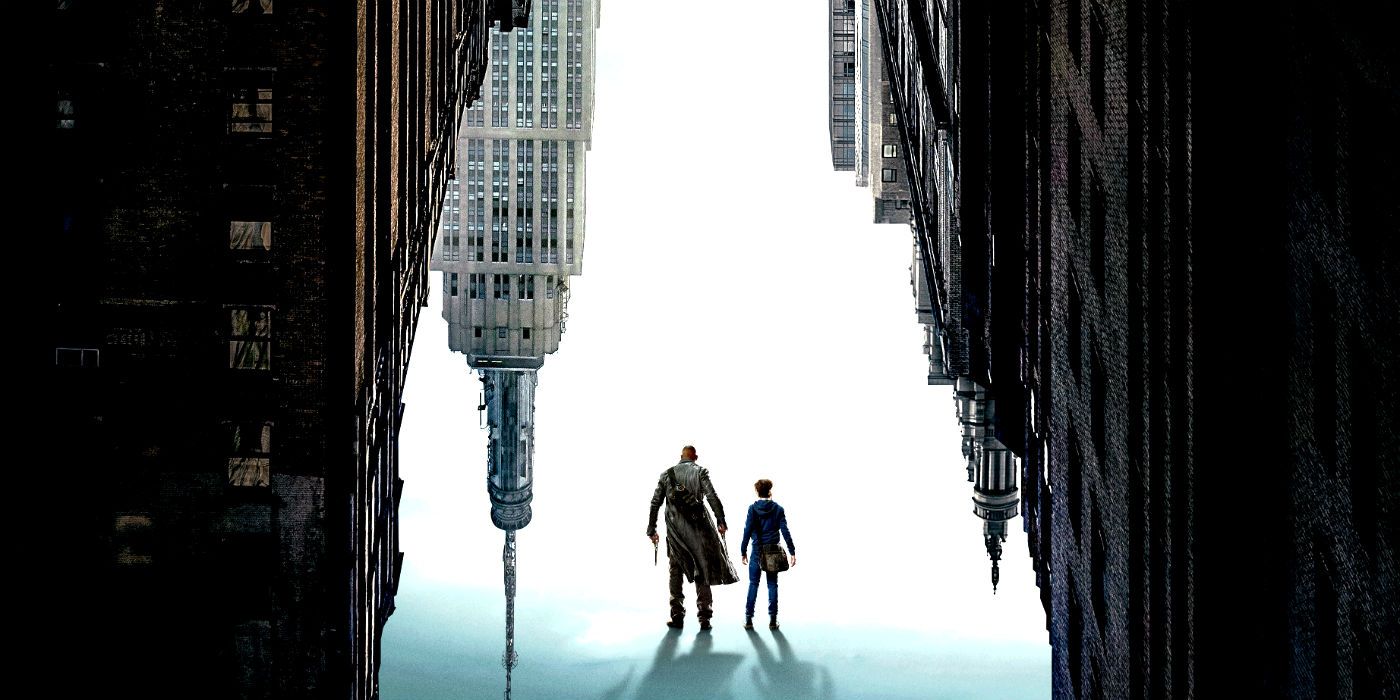Stephen King’s dozens of books all connected back to The Dark Tower, referencing characters from older stories and drawing connections that flesh out his universe. The Dark Tower series itself follows Roland Deschain, the last surviving member of an order known as the ‘gunslingers’, as he travels to the find The Dark Tower, a fabled building that is said to be the epicenter of all universes. Along his journey, he meets many friends but also terrifying enemies, such as The Man in Black, better known as Randall Flagg, and The Crimson King.
The Dark Tower proves to be truly the epicenter of Stephen King’s universe. A prolific author with a career stretching back to the early seventies, Stephen King connects his many stories to The Dark Tower universe, a staggering feat considering he’s published sixty-three novels in total.
Click the button below to start this article in quick view.
Considering the vast connections the series makes, it’s no wonder that the film adaptation suffered until the weight of the Hollywood system. From recurring lands, characters, monsters, fans of King’s enjoy trying to find them all. However, the major connections are undoubtedly the reappearances of Donald Callahan, Ted Brautigan, Randall Flagg, and The Crimson King, all of which bring new life to his many stories.
The Dark Tower’s Major Connections To King’s Stories
In his 1975 novel, Salem’s Lot, readers were introduced to Donald Callahan, a priest who slowly loses his faith. This is a bad time considering he’s in a story that made vampires downright horrifying. After narrowly escaping an attack by oncoming vampires, Callahan is refused entry to the church, and burns his hand on the door. Bemoaning how ‘unclean’ he has become, Father Callahan boards a bus and disappears from the story entirely. He later reappears in the Wolves of the Calla, the fifth Dark Tower book. Once arriving in New York City, Callahan became a vagrant and developed the ability to sense vampires. Luckily, he befriends several people and becomes a vampire hunter. His activities attract the attention of The Crimson King, who sends his soldiers, the ‘can-toi’, to hunt him down.
When captured, the can-toi go to carve a swastika on his forehead but are interrupted, leaving Callahan with a cross on his forehead, and he soon commits suicide. However, he doesn’t die and is instead given new life. He tries to teach the locals religion, but his psyche soon crumbles when he discovers a book, Salem’s Lot, and he questions his own reality. In the final Dark Tower books, Callahan is unable to meet his creator, Stephen King, and thus spends time with Roland and the gang. He becomes a valued member and, when a swarm of vampires threatens to overtake them, Callahan completes his character arc by becoming a hero and sacrificing himself to save his friends.
The can-toi are rat hybrids that wear human flesh. They appear in King’s 1999 short story collection, Hearts of Atlantis, hunting the psychic Ted Brautigan in the story “Low Men in Yellow Coats.” It’s not until the final Dark Tower book that readers learn exactly why Ted was being chased. A powerful psychic that The Crimson King desires, Ted manages to escape their clutches and enters 1960 Connecticut. This when “Low Men in Yellow Coats” picks up, where Ted is captured by the can-toi in a manner similar to how they hunted down Donald Callahan in the Wolves of the Calla. It is only in the final Dark Tower book that readers meet up with Ted again, who escapes from the clutches of the can-toi thanks to Roland. Ted assists Roland in his final quest before leaving with his friends to redemption from the Calla folken and return to America, finally given the happy ending he was deprived from in “Low Men in Yellow Coats.”
The 1979 novel, The Stand, readers met the villainous Randall Flagg. After 99% of the world’s population dies off after a virus outbreak, Flagg rises up one of the many possible leaders of the new world. After his defeat, he is seen in the epilogue after a nuclear-blast, having transported at the last second, still alive and looking to be worshiped. He makes his second appearance in King’s 1984 fantasy novel, The Eyes of the Dragon, as a wizard who wants to kill King Roland and become a King. If this is the same Flagg in The Dark Tower series, could King Roland be the same, or another version, of the gunslinger Roland Deschain? Either way, Flagg makes his third appearance in the The Dark Tower series as a supernatural being who wants to keep Roland from reaching Tower so he can claim it for himself and become a God. In each and every incarnation, Flagg is always a being who wants to be worshiped.
The big-bad of The Dark Tower series is The Crimson King. The main antagonist of The Dark Tower series, The Crimson King is hinted in The Stand, where Mother Abagail notes that Flagg, “ain’t Satan, but he and Satan know of each other and have kept their councils together of old.” The Crimson King also gets a mention in “Low Men in Yellow Coats,” where Ted first appeared, is revealed to be responsible for the events in the 2001 horror novel Black House, but his first full-fledged appearance is in Insomnia, where he tries to kill Patrick Danville, another character who appears at the end of The Dark Tower series. Despite his influence causing much havoc in Stephen King’s stories, it is only in The Dark Tower series that The Crimson King properly appears.
The Dark Tower series covers a lot more characters and a lot more stories, making it easy to see why the television series hasn’t moved forward; there is simply too much to cover. Luckily, the books of Stephen King are still out there ready to frighten unsuspecting readers and suck them into a whole new universe.
